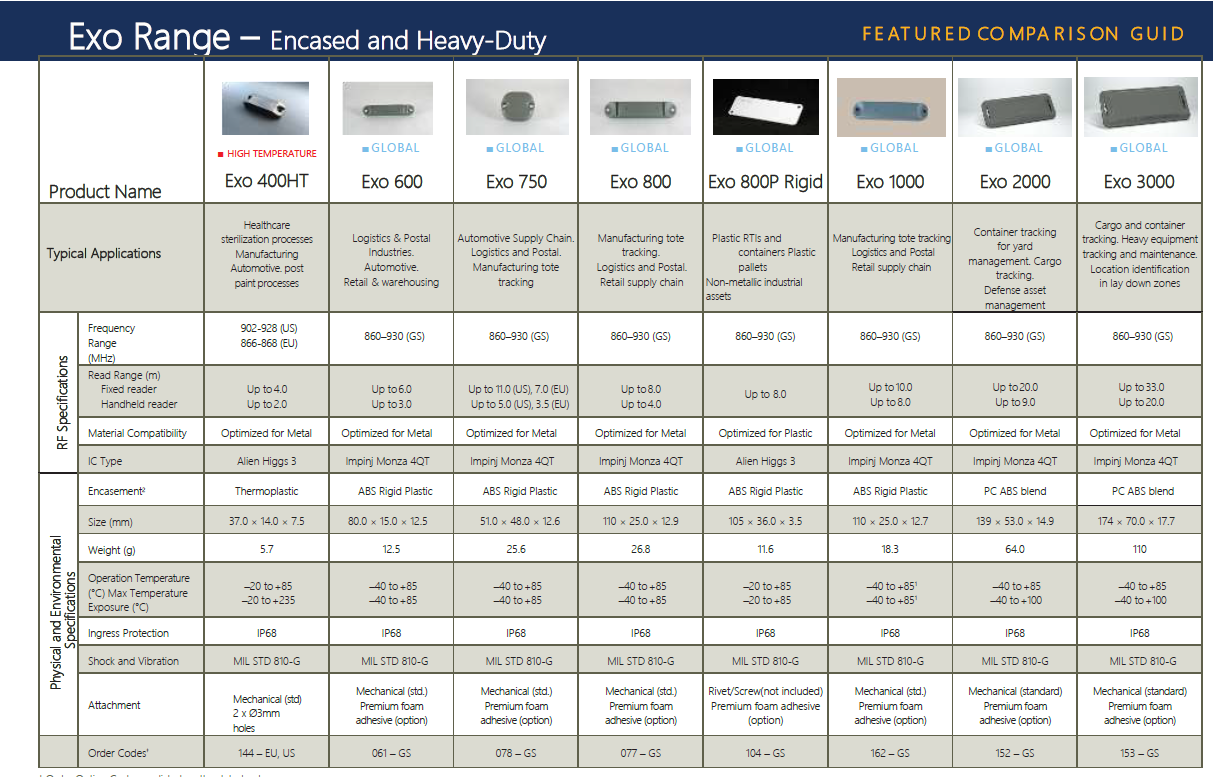Radio Frequency Identification (RFID) tags are small,
wireless devices used for tracking and identifying objects, animals, or people
using radio waves. Each tag consists of a microchip and an antenna, and they
come in various forms such as stickers, cards, or embedded in products. RFID
tags communicate with an RFID reader to transfer data, which can be used in
supply chain management, inventory control, security systems, and more.
Operating from NSW, Australia, TrackSeal fulfils the RFID tag requirements of various industries. To find out more about the benefits of RFID tags, connect with us today to Secure and enhance your business operations.
Tag selection criteria –
Tags for Metallic assets (e.g. Tools, metallic furniture, crates, vehicles)-
The presence of metal can reflect and absorb RFID signals, making it challenging for standard RFID tags to function properly. On-metal tags are equipped to handle these challenges and maintain reliable communication. These tags have longer read range, are more durable and can handle moisture, chemicals, temperature variations and physical impact.
Tags for Non-Metallic (e.g. Card board, plastic) assets -
Non-metallic RFID tags are specifically designed to be used on non-metal surfaces such as plastic, wood, cardboard, fabric, or glass. Unlike tags optimized for use on metal, these tags perform well in environments without conductive surfaces that may interfere with signal transmission.
Some of the tags supplied by TrackSeal are listed below, however we have many more tag options for various applications. Please get in touch with us on info@trackseal.com for a complete list of tags.
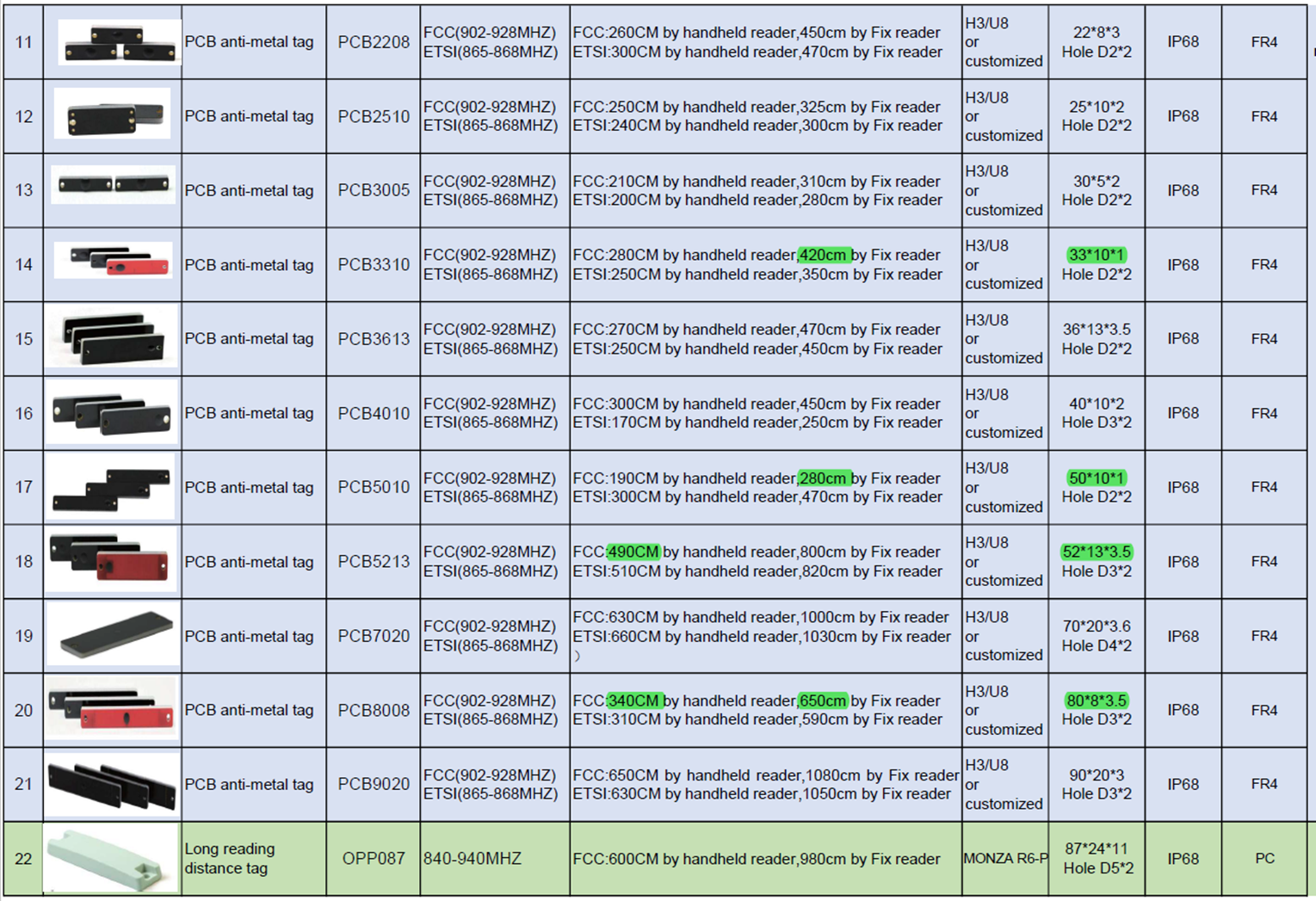
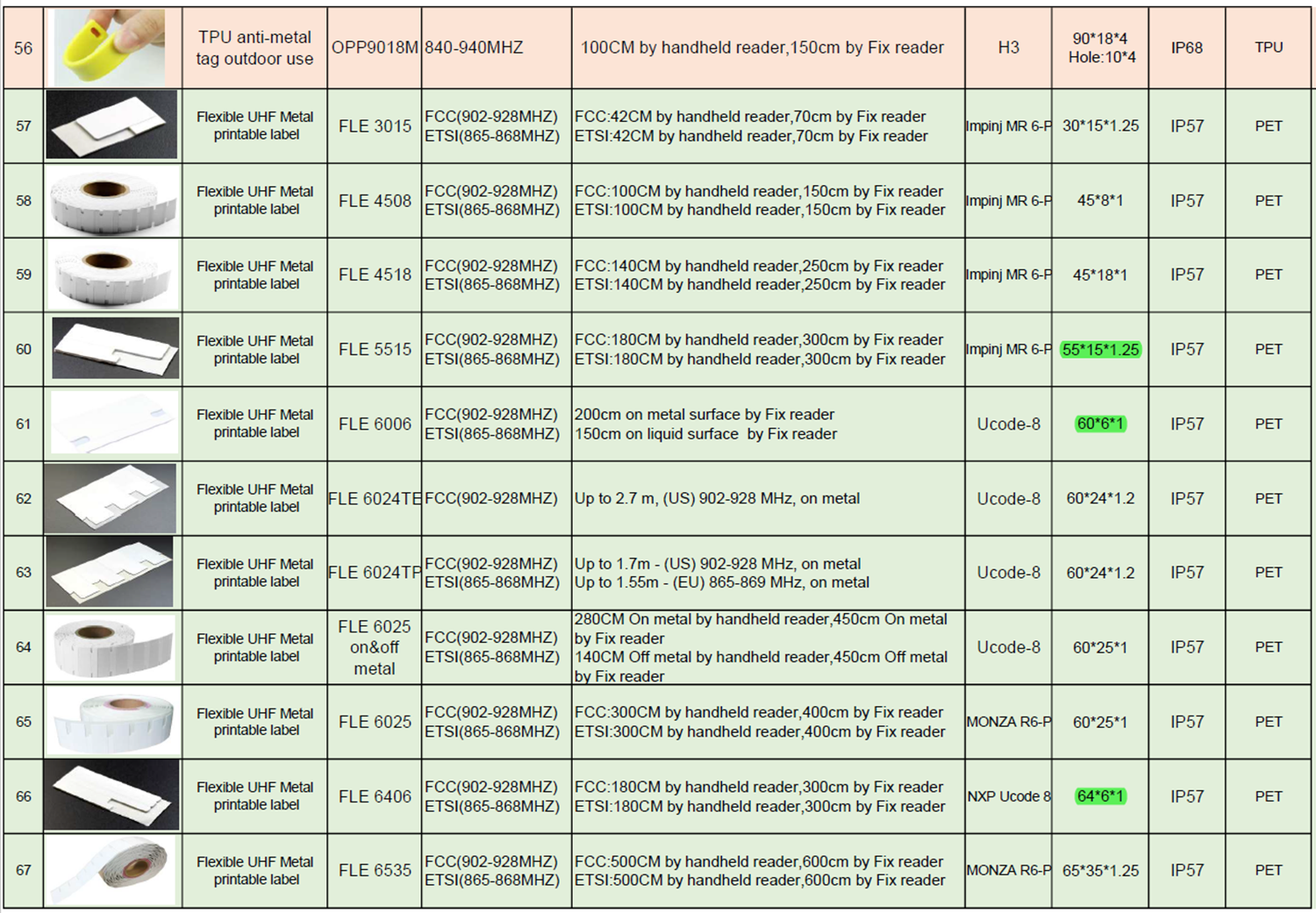
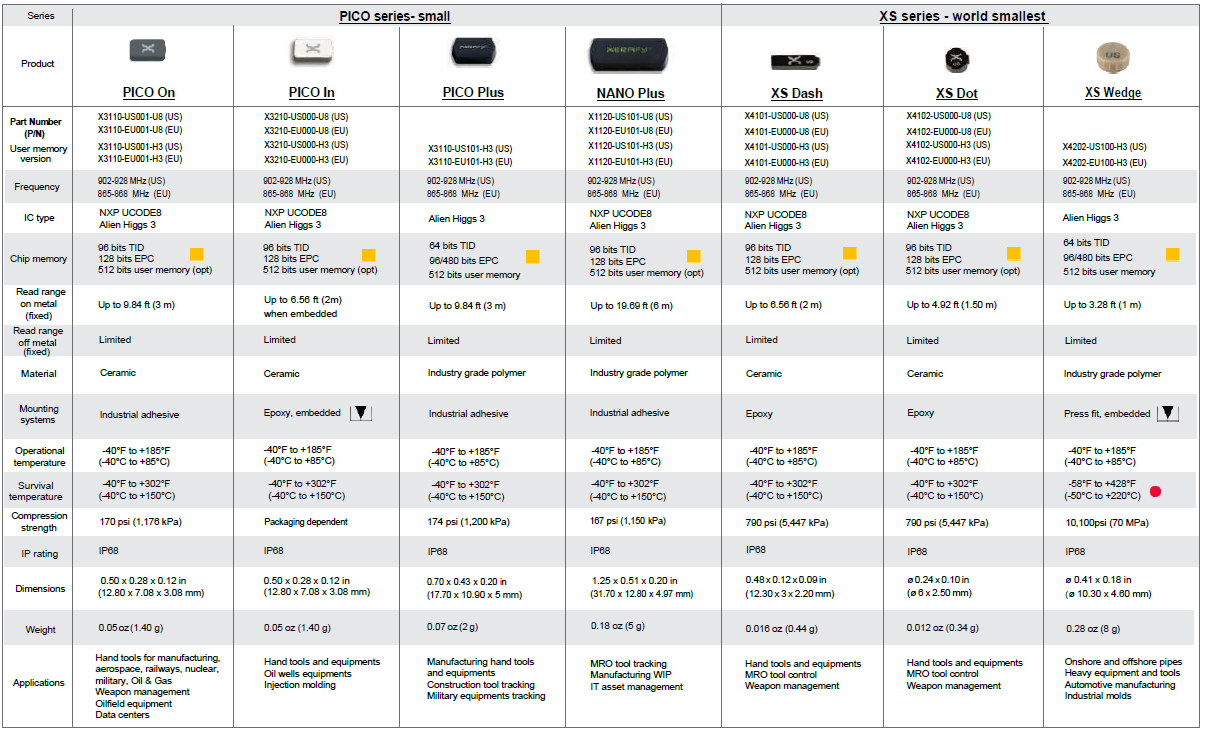
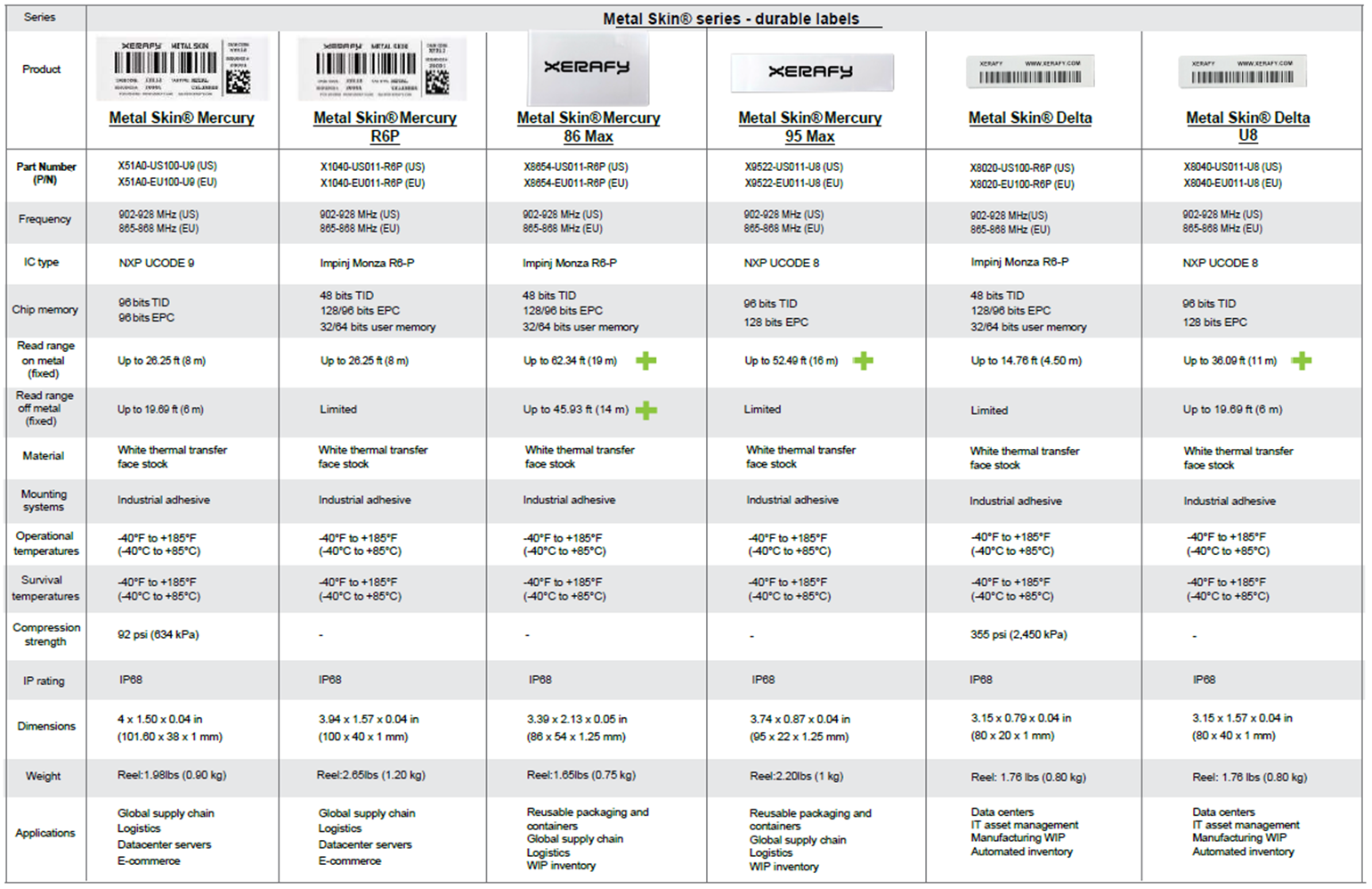
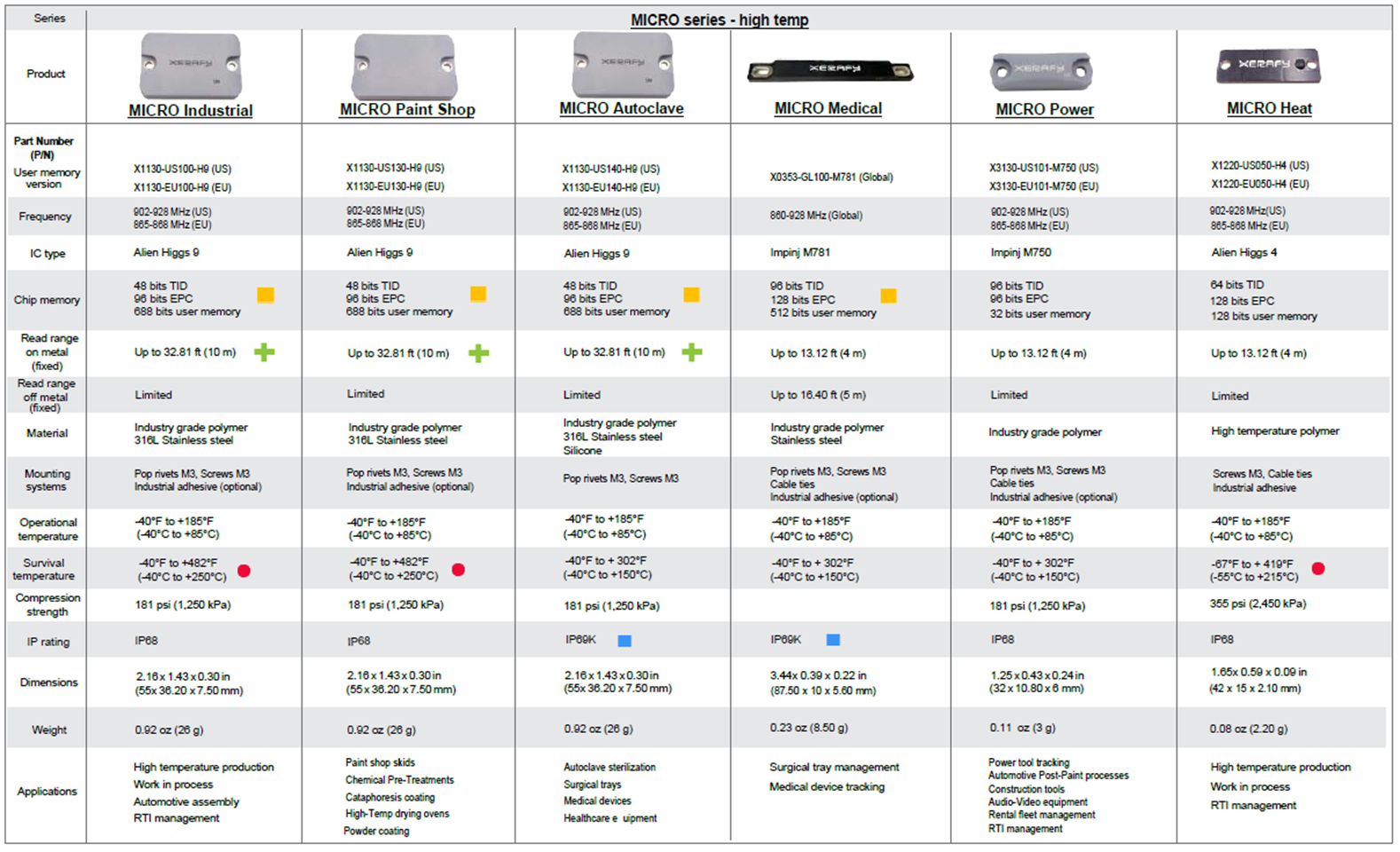
6. Long Range tags from HID/OmniID
